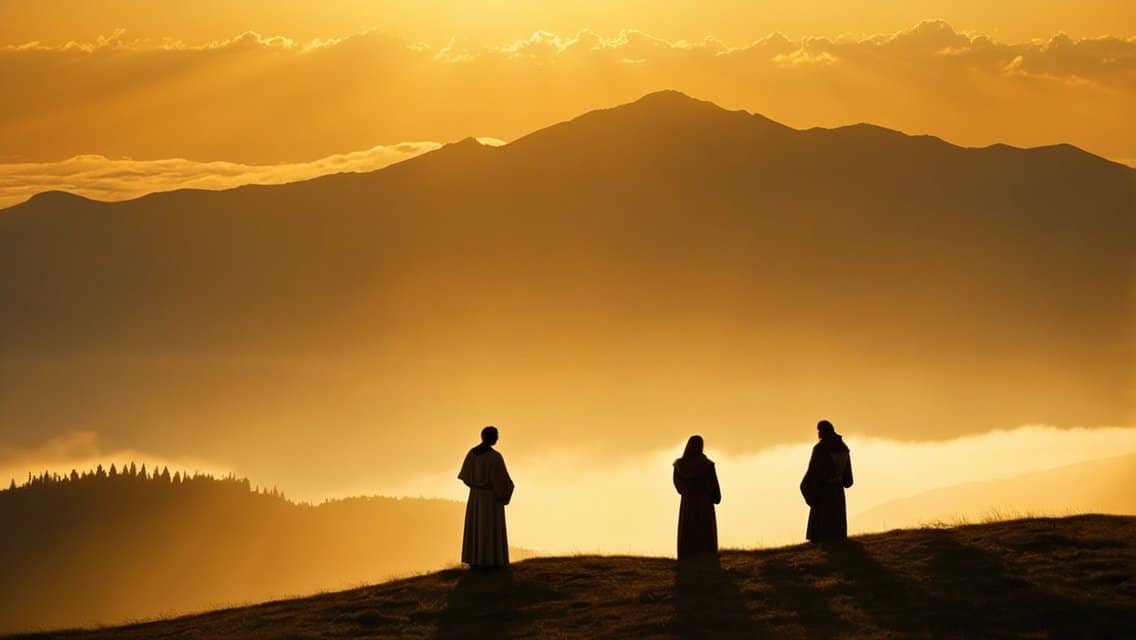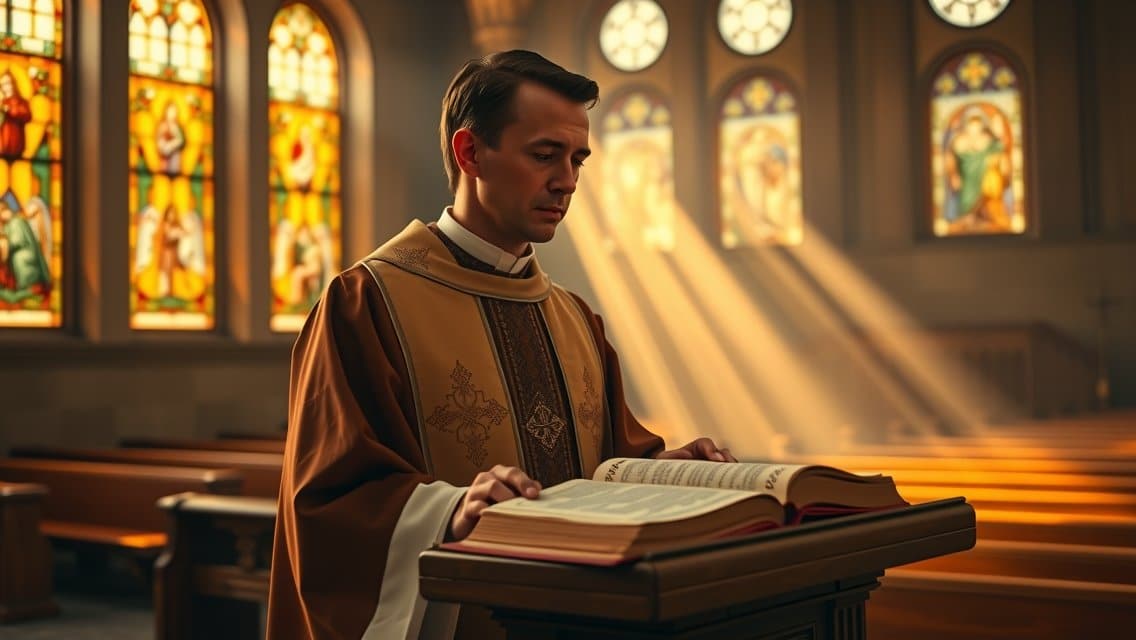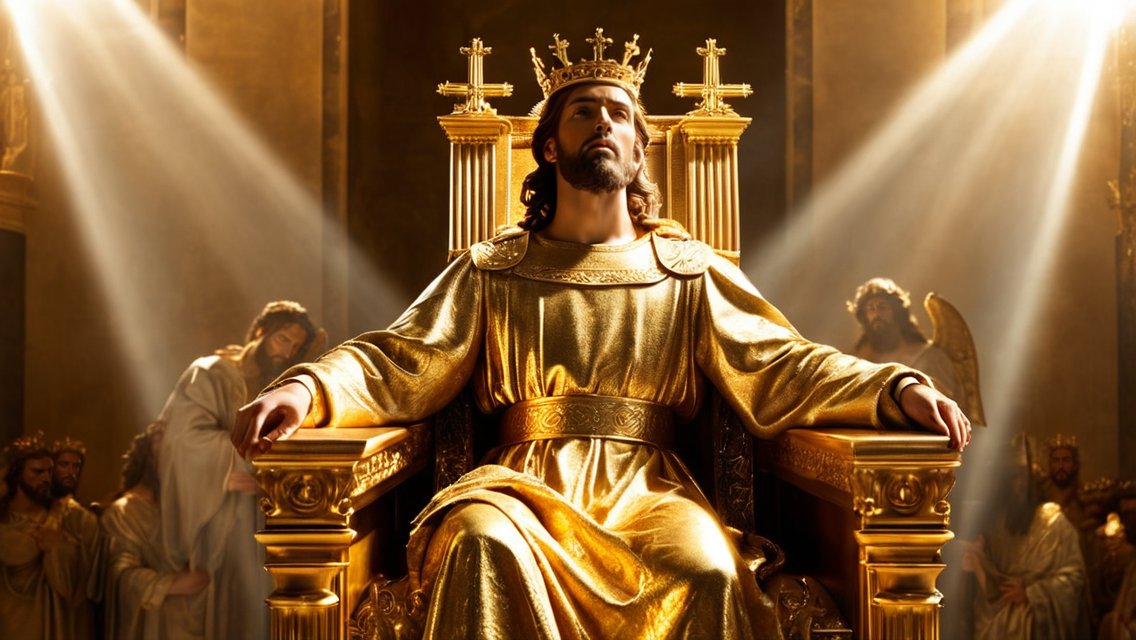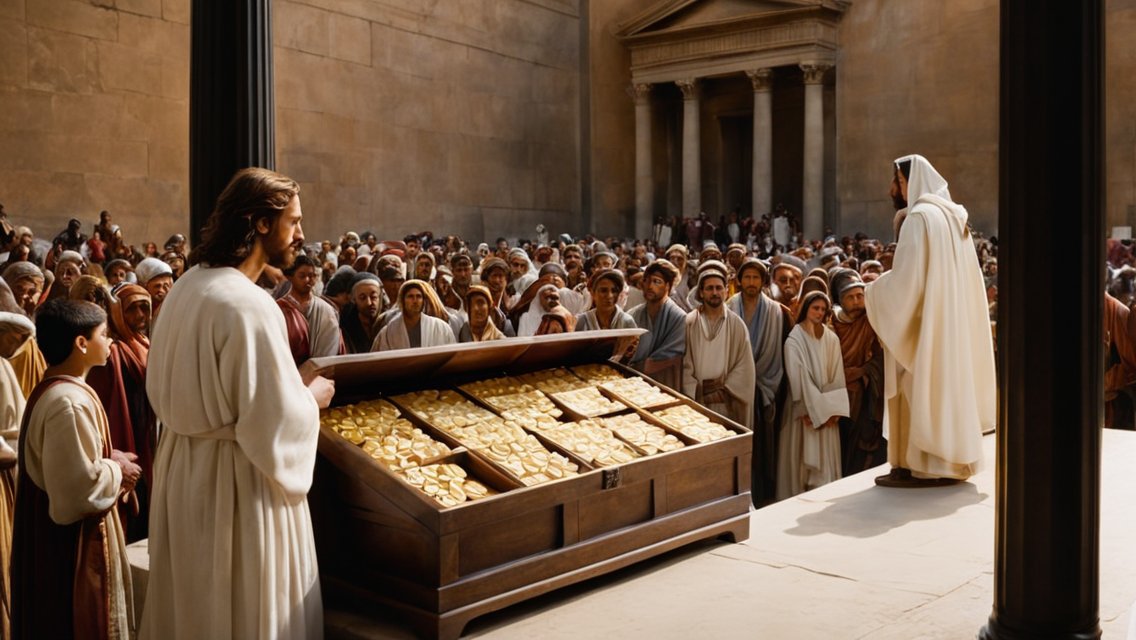Second Sunday of Lent Homily – Year B
Readings:
Gen 22:1-2, 9-13, 15-18
Rom 8:31-34
Mk 9:2-10
1st Reading – Genesis 22:1-2, 9A, 10-13, 15-18
1 God put Abraham to the test. He called to him, “Abraham!” “Here I am!” he replied.
2 Then God said: “Take your son Isaac, your only one, whom you love, and go to the land of Moriah. There you shall offer him up as a holocaust on a height that I will point out to you.”
9A When they came to the place of which God had told him, Abraham built an altar there and arranged the wood on it.
10 Then he reached out and took the knife to slaughter his son.
11 But the LORD’s messenger called to him from heaven, “Abraham, Abraham!” “Here I am!” he answered.
12 “Do not lay your hand on the boy,” said the messenger. “Do not do the least thing to him. I know now how devoted you are to God, since you did not withhold from me your own beloved son.”
13 As Abraham looked about, he spied a ram caught by its horns in the thicket. So he went and took the ram and offered it up as a holocaust in place of his son.
15 Again the LORD’s messenger called to Abraham from heaven
16 and said: “I swear by myself, declares the LORD, that because you acted as you did in not withholding from me your beloved son,
17 I will bless you abundantly and make your descendants as countless as the stars of the sky and the sands of the seashore; your descendants shall take possession of the gates of their enemies,
18 and in your descendants all the nations of the earth shall find blessing – all this because you obeyed my command.”
Responsorial Psalm – Psalms 116:10, 15, 16-17, 18-19
R. (116:9) I will walk before the Lord, in the land of the living.
10 I believed, even when I said,
“I am greatly afflicted.”
15 Precious in the eyes of the LORD
is the death of his faithful ones.
R. I will walk before the Lord, in the land of the living.
16 O LORD, I am your servant;
I am your servant, the son of your handmaid;
you have loosed my bonds.
17 To you will I offer sacrifice of thanksgiving,
and I will call upon the name of the LORD.
R. I will walk before the Lord, in the land of the living.
18 My vows to the LORD I will pay
in the presence of all his people,
19 In the courts of the house of the LORD,
in your midst, O Jerusalem.
R. I will walk before the Lord, in the land of the living.
2nd Reading – Romans 8:31B-34
Brothers and sisters:
31B If God is for us, who can be against us?
32 He who did not spare his own Son but handed him over for us all, how will he not also give us everything else along with him?

33 Who will bring a charge against God’s chosen ones? It is God who acquits us,
34 who will condemn? Christ Jesus it is who died – or, rather, was raised – who also is at the right hand of God, who indeed intercedes for us.
Verse Before The Gospel – Matthew 17:5
5 From the shining cloud the Father’s voice is heard:
This is my beloved Son, listen to him.
Gospel – Mark 9:2-10
2 Jesus took Peter, James, and John and led them up a high mountain apart by themselves. And he was transfigured before them,
3 and his clothes became dazzling white, such as no fuller on earth could bleach them.
4 Then Elijah appeared to them along with Moses, and they were conversing with Jesus.
5 Then Peter said to Jesus in reply, “Rabbi, it is good that we are here! Let us make three tents: one for you, one for Moses, and one for Elijah.”
6 He hardly knew what to say, they were so terrified.
7 Then a cloud came, casting a shadow over them; from the cloud came a voice, “This is my beloved Son. Listen to him.”
8 Suddenly, looking around, they no longer saw anyone but Jesus alone with them.
9 As they were coming down from the mountain, he charged them not to relate what they had seen to anyone, except when the Son of Man had risen from the dead. So they kept the matter to themselves, questioning what rising from the dead meant.
Homily
No Cross, No Crown
“God did not spare his own son” (Rom)
Arthur Ashe, the legendary Afro-American Wimbledon player was dying of cancer. He received letters from his fans, worldwide, one of which read: “Why did God select you for such a dreadful disease?” Ashe replied, “The world over, 5 crore children start playing tennis, 50 lakh learn the game, 5 lakh turn professional, 50,000 come to the circuit, 5,000 reach Grand Slams, 50 reach Wimbledon, 4′ to the semifinals, 2 to the finals. When l won the Wimbledon crown, I never asked God, “Why me?” Today, in pain, l shouldn’t be asking God, “Why me?” Wimbledon crown, cancer cross. That’s Christianity!
In three different ways, today’s readings plant the cross on Centre stage: [a] by highlighting the sacrifice between father (Abraham/Abba) and son (Isaac/Jesus); [b] by stressing that the cross is not a 2000-year old event but animates Christian life and practice here-and-now; [c] by reminding us that it’s neither in Jesus’ miracles nor in his transfiguration that we see God’s glory, but in his cross.
Abraham’s willingness to sacrifice his son, Isaac, has traditionally been interpreted as his readiness to obey God’s will unquestioningly. God ‘tests’ Abraham’s faith (Heb 11:17), and he responds hundredfold. It’s great to see this story not only recounted by the three so-called ‘Abrahamic religions’-Judaism, Christianity and Islam – but also ritualized around us during the Muslim feast of Bakri Id. However, while the focus of the story is on Abraham, we often forget about Isaac who also surrendered.
In Christian Tradition, Abraham’s sacrifice is seen in new light with a focus not so much on the father, but on the son. Thus Christianity reinterprets the passage in the light of the Passover lamb, and sees Jesus’ voluntary surrender similar to that of Isaac, but infinitely greater, as Jesus does die; and in so doing, atones for humankind’s sin. This idea becomes clearer in the second reading.
Paul’s passage contains four rhetorical questions, all echoing the immensity of Abba’s love made efficacious through Jesus’ sacrifice. It has the Abraham-Isaac typology in the sentence: “Since God did not spare his ohm Son, but gave him up to benefit us all, we can be certain he will not refuse anything he can give.” Thus, Jesus’ sacrifice is revelatory of Abba’s readiness to give us everything that will foster our wellbeing.
It helps to reflect on the first two readings from dual perspective. On the one hand, Father is ready to sacrifice Son (see also Jn 3: 16). But, on the other, Son remains fearlessly faithful to Father’s will even unto death. In the same act of Christ’s crucifixion, Abba experiences the painful passion of his Son, and Jesus experiences forsakenness and separation from Abba. This is the crowning glory of God’s crucified love.
We have myths of father-son-sacrifice in the Chhotanagpur Indian tribal traditions when, for instance, Singbonga (Supreme Being) appears on earth in the guise of a boy covered with scabies who offers himself as vicarious sacrifice in expiation for human pride and greed. Apparently, there is inherent in humankind a divine spark ready for sacrifice.
Mark’s account of Jesus’ transfiguration differs from that of Matthew’s and Luke’s in the bewilderment of all three disciples and Jesus’ command to them to keep silent till after his resurrection. In other words, while Matthew and Luke already show Jesus’ miracles and transfiguration as indicative of his divine origin during his lifetime, Mark stresses on the ‘suffering saviour’ who will only be crowned in glory after dying on the cross. No cross, no crown.
Too easily does l seek crowns and shun crosses. But, my suffering saviour has a crown – of thorns – capping his cross. Within God’ 5 ‘glory’ I see the ‘gory’ God, bleeding and broken, a victim of poverty and exploitation, loneliness and lovelessness, hunger and disease, addiction and depravity, abuse and violence. He needs my help today. Will l bear all these, His crosses, until He transfigures crosses into crowns?





